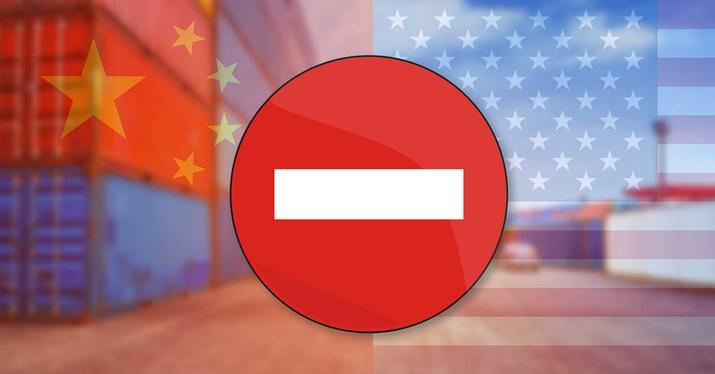The US Department of Commerce has released a new edition of its technology company blacklist, placing companies that cannot import certain US technologies without a license for reasons of national security, foreign policy interests, or the possibility that some can help companies already banned to evade the restrictions imposed.
This new edition of the black list (Entity List) adds 36 new Chinese companies to a large number of companies that the United States considers dangerous to its interests.
36 Chinese startups banned
The United States looks again at China in this new update of its commercial blacklist, with justifications of various kinds. Probably the most notable case among the more than 3 dozen companies involved is that of China’s leading flash memory maker, the state-owned Yangtze Memory Technologies Co (YMTC), along with one of its Japan-based subsidiaries. The main reason is that it is considered that they divert part of their imports to already sanctioned companies such as Huawei, accused of using their devices for world espionage that provides data to the Chinese government.
 “The represented agencies determined to add Yangtze Memory Technologies Co., Ltd. and Hefei Core Storage Electronic Limited in China and Yangtze Memory Technologies (Japan) Inc. in Japan to the Entity List for posing a significant risk of engaging in anti-trust activities. the national security or foreign policy interests of the United States. This request is based on information indicating that these companies present a diversion risk to companies on the Entity List, including Huawei Technologies and Hangzhou Hikvision Digital Technology. This activity is contrary to national security. or foreign policy interests of the United States under section 744.11(b) of the Export Administration Regulations (EAR).”
“The represented agencies determined to add Yangtze Memory Technologies Co., Ltd. and Hefei Core Storage Electronic Limited in China and Yangtze Memory Technologies (Japan) Inc. in Japan to the Entity List for posing a significant risk of engaging in anti-trust activities. the national security or foreign policy interests of the United States. This request is based on information indicating that these companies present a diversion risk to companies on the Entity List, including Huawei Technologies and Hangzhou Hikvision Digital Technology. This activity is contrary to national security. or foreign policy interests of the United States under section 744.11(b) of the Export Administration Regulations (EAR).”
The other company for which they seem to make diversions is Hikvision, a Chinese company specializing in CCTV cameras and video surveillance that was previously banned in 2018 by the United States and later by the United Kingdom, which prohibited placing its cameras in government buildings on suspicion of being used the data to be sold to third parties, which compromises national security.
Militarization, human rights and support for Russia
The main national security risk for which the United States has added 30 of the 36 new companies has to do with the acquisition and attempt to acquire US-origin items in support of the PRC’s military modernization.
“Seven of the entities involved in supporting the PRC’s military modernization have demonstrable direct links to troubling activities. These include the development of hypersonic weapons, the design and modeling of hypersonic flight vehicles, the design and production of ballistic missile radomes, the use of proprietary software to model weapon design and damage, and other efforts to support the military-civilian fusion activities linked to the Chinese People’s Liberation Army Air Force and Navy.”
An entity has been added for engaging in or enabling activities contrary to US foreign policy interests and violations of human rights, including implementation of China’s crackdown campaign, mass arbitrary detention, and high-tech surveillance against Uyghurs and other Muslim minority groups in Xinjiang.
According to experts working for the UN, as well as other human rights groups, more than a million people have been detained and are in labor camps in Xinjiang, the majority belonging to Uyghurs and other Muslim minorities.
In addition, this company is also accused of allowing the acquisition of items of US origin for use by the Islamic Revolutionary Guard Corps of Iran. Speaking of Iran, another of the companies has been listed for the use of American parts for use in the production of military UAVs and missile systems.
Finally, as the relationship with Russia is, especially after the outbreak of the invasion of Ukraine, two companies located in the People’s Republic of China that have been on the Entity List since 2018 for having supported or continue to support the army are added. from Russia (‘support’) since the imposition of new export controls, so they will now be considered Russian ‘military end-users’.













